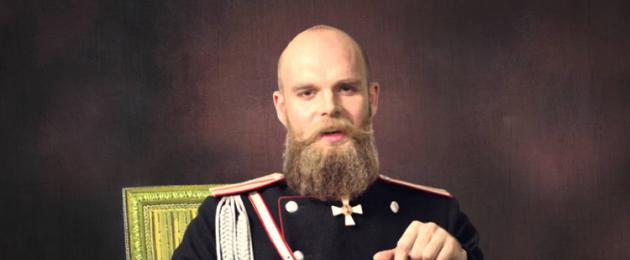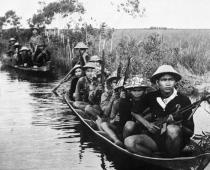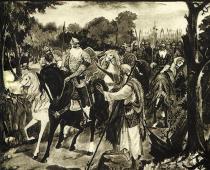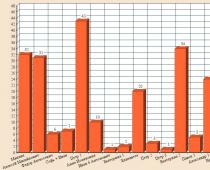On March 1, 1881, after a terrorist attack committed by members of the revolutionary organization Narodnaya Volya, Emperor Alexander II died of severe wounds. The second son of the emperor, Alexander Alexandrovich, ascended the throne. Alexander III was crowned on March 15, 1881.
The future monarch was brought up in a military environment. Therefore, it is generally accepted that he did not receive a secular education, which was considered traditional and mandatory for his status, but was very efficient and physically incredibly strong.
The chief prosecutor of the Holy Synod, the famous theorist of the monarchy, who during the first months of Alexander's reign was the most influential person in the Russian government, was engaged in the upbringing of the young tsar.
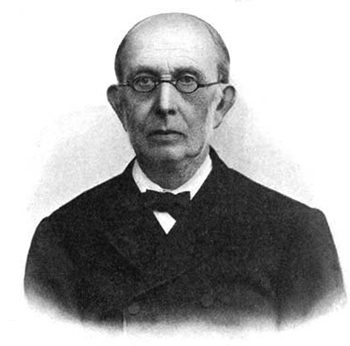
Shocked by numerous attempts on his life and the tragic death of his father, realizing that Russia, which had begun to reform, plunged into a gloomy swamp of terror, at the beginning of his reign, the tsar was faced with the need to choose a new course of government. It was a time of confrontation between two parties: the liberal (wishing to continue the reforms begun by Alexander II) and the monarchist.
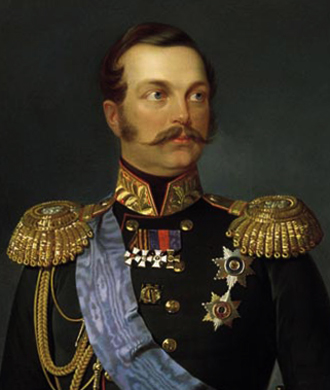
At the beginning of his reign, Alexander had to "maneuver" between the liberals and the supporters of the reaction. As a result, the idea of the constitutionality of the Russian Empire was rejected, and the tsar proclaimed a course to strengthen the monarchy, preserve traditions and reject the ideas of liberalism. At that time, public opinion, to which it was already customary to listen, could have any influence on the choice made by the new king.
But the inhumanly brutal terrorist attack on March 1, which resulted in the death of not only the monarch, but also several absolutely innocent people, did not cause in society the rise of revolutionary consciousness that the terrorists had expected. The traditional society, in anticipation of a harsh reaction from the authorities, quieted down and recoiled from the Narodnaya Volya. The assassination of the emperor caused panic confusion in society. Large-scale measures of search and inquiry led to the fact that soon all the surviving organizers and perpetrators of the terrorist attack were found, interrogated and convicted. Five participants in the assassination of the king were publicly executed. The hopes of the revolutionaries that the assassination of the tsar would cause an upsurge in the popular movement did not come true.
Alexander III, having studied the situation in society, decided to completely abandon the liberal plans of his father, heading for return to absolute monarchy. What influenced the course of thought of the young emperor? The main reason was the hunt that the terrorists staged on his father, not only the murder, but also the previous 6 assassination attempts. The new king decided to exclude the possibility of any threats to the monarchy.
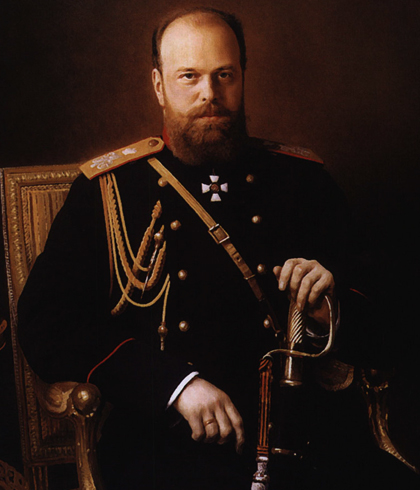
Positive results of the reign of Alexander III
Peace. During his 13-year reign, the Russian Empire did not take part in any war. The only military episode was an exception - in 1885, near the Kushka River, units under the command of General A.V. Komarov defeated the Afghan troops.
Peace and tranquility within the country. The system of bodies that controlled the internal security of the state, during the reign of the 13th emperor and autocrat of the All-Russian, was improved and strengthened like never before. The main role in supporting the regime was played by the Police Department, whose activities acquired an unprecedented scope. By the mid-80s of the 19th century, terrorist activity in the country had completely ceased. For all the time there was only one successful terrorist act: in Odessa, in 1882, the prosecutor V.S. was killed. Strelnikov.
In 1886, with the active participation of A.I. Ulyanov, the elder brother of the future leader of the October Revolution, the “Terrorist faction” of the “Narodnaya Volya” was created, which consisted mainly of students from St. Petersburg University. The terrorists decided to kill the emperor on the anniversary of his father's death, timed to coincide with the attack on March 1. Thanks to strong operational positions, the internal security agencies prevented the assassination attempt. The organizers were detained, convicted and executed.
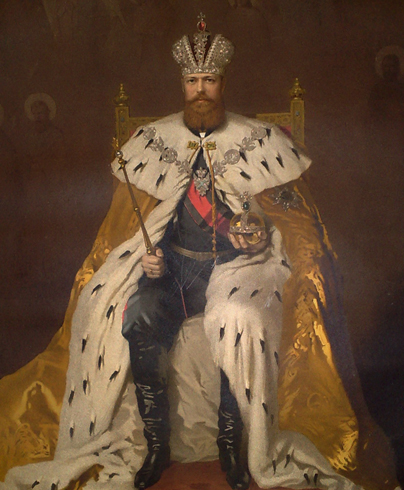
Economic recovery and prosperity. The tsar's desire to develop and emphasize everything Russian was extended to economic policy, which determined the growth of Russian industry and trade. For the first time in a long time, state revenues exceeded expenditures. During the period from 1881 to 1894, a real economic breakthrough was made in the country, and its own industry was created. The country modernized the army and navy (which the tsar recognized as the only real allies), became the world's largest food exporter. 114 ships were built: 17 ironclads and 10 armored cruisers. The army was put in order after the disorganization that occurred during the Russian-Turkish war of 1877-1878. The construction of the Great Siberian Railway began - the railway line Chelyabinsk-Omsk-Irkutsk-Khabarovsk-Vladivostok, about seven thousand kilometers long.
Making life easier for both peasants and workers. Measures taken to this end included, for example, the termination of the temporary obligation, the gradual abolition of the poll tax, and unsuccessful attempts to legitimize and put in order the relationship between workers and their employers. Redemption payments were lowered, the redemption of peasant allotments was legalized, a peasant bank was created to be able to obtain loans for the purchase of land. The factory work of minors was limited, as well as night work of women and children.
Development of national culture. Grandiose in their significance, pricelessness and splendor, works of art from the time of Alexander III are an integral part of our spiritual “gold reserve”. According to S. Diaghilev, Alexander III became the best monarch for the national culture. A real upsurge began in literature, painting, music and ballet. The truly great Russian art, which glorified our country, began at that time.
The development of museum and historical activities and the spread of Russian culture. Alexander III took large-scale measures to develop historical knowledge about our Motherland. The activities of the Imperial Historical Society under the leadership of the emperor himself intensified. The Historical Museum in Moscow and the Patriotic Museum in Sevastopol were created. The first Siberian University was founded, the project of the Russian Archaeological Institute in Constantinople was created, the Russian Imperial Palestinian Society began to operate. Many Orthodox churches have been built around the world.
Intelligent foreign policy. Russia's position in the international arena was strengthened. Russia continued to acquire reliable partners and sought to maintain peace with all states. The territory of the state "grew up" by 430,000 square meters. km. Kazakhstan, the Kokand and Khiva khanates and the Emirate of Bukhara were annexed.
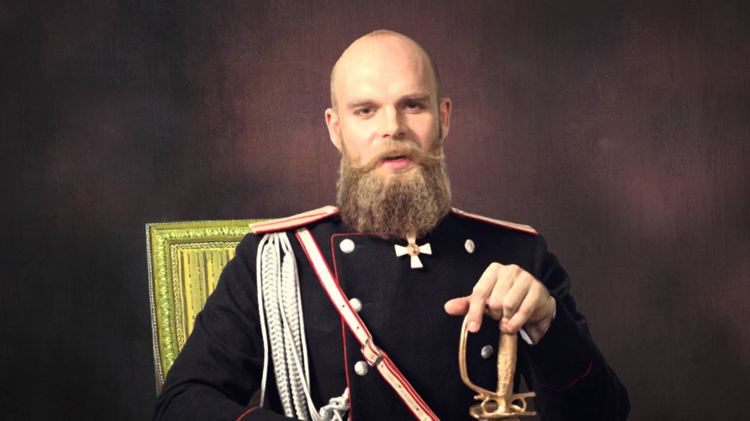
Negative results of the reign of Alexander III
Eliminate opportunities for local self-government independence. In the "City Regulations" of 1892, the city self-government bodies were included in the system of state institutions.
Reaction in education. In 1884, the university counter-reform was launched, aimed at educating a loyal mass of the intelligentsia. The university charter was introduced, the universities were deprived of autonomy. All curricula came under control. The decree of the Minister of Education was issued, which became known as the "law on the cook's children." The regulation made it extremely difficult for children from the lower classes of society to enter gymnasiums and universities.
Domestic policy did not solve the fundamental problems in the life of workers and peasants. The measures taken to resettle the peasants turned out to be insufficient to solve the problem of land shortage. The workers did not receive the expected amount of social guarantees, besides, the creation of factory legislation was initiated, which, on the one hand, restrained the arbitrariness of the owners of the enterprise, but, on the other hand, excluded the freedom of speech of disgruntled workers.
Excesses in national politics. Here the emperor intensified Russification, suppressing the slightest manifestations of national movements. The development of all Russian was combined with the formation of hostility towards various "foreigners" - Poles, Finns, Jews, Armenians and representatives of other nationalities. The way to the gymnasium, and even more so to the universities, was made more difficult for Jews.
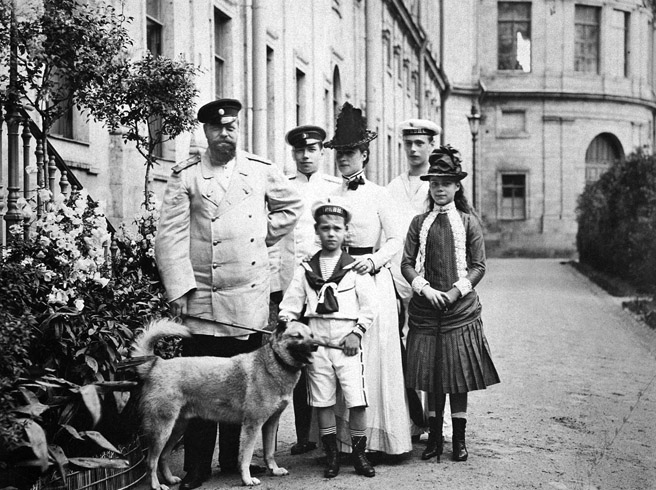
Conclusion
Until now, in our minds there is no consensus regarding the results of the activities of Alexander III. However, in history there are practically no first persons of the state (and this especially applies to monarchs) who have left a 100% negative or positive impression about themselves.
For others, this is primarily a monarch who did not want progress in social relations, encouraged reaction, anti-Semitism, who did not approve of the excessive education of the lower strata of society, who stopped the "social elevators".
The results of the counter-reforms are contradictory: Russia managed to achieve an unprecedented industrial boom, maintain peace, but at the same time, social tension and various "fermentations" in society increased. The reign of the peacemaker king was the calm before the inevitable storm. It was a time of a combination of technological progress, economic recovery and reaction, unwillingness to recognize the need for progress in social relations and social compromise. At the same time, the police regime and class privileges of the nobility were strengthened.
- In contact with 0
- Google+ 0
- OK 0
- Facebook 0

